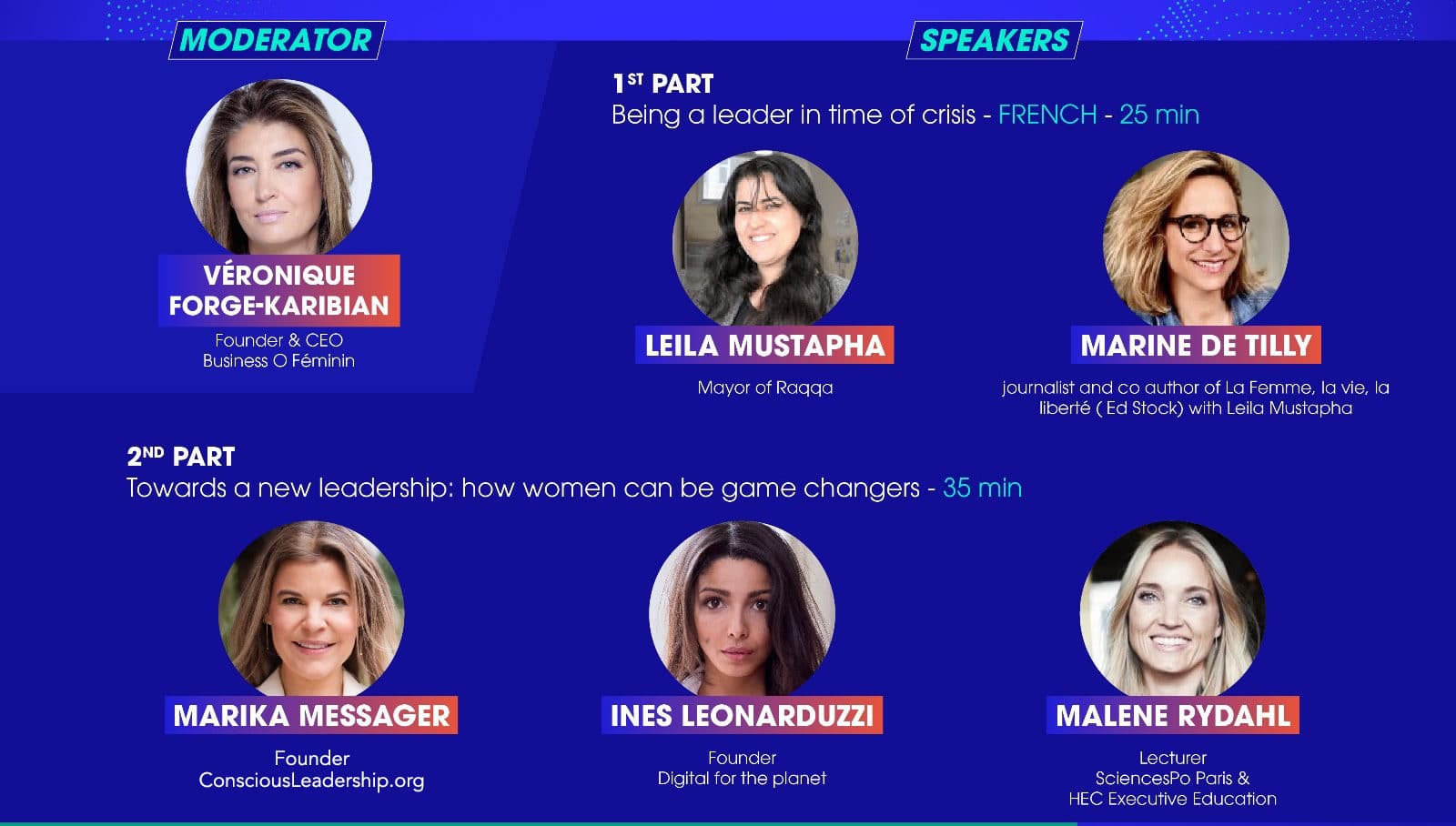Recently, several articles and researches have pointed out that female leaders had been better at handling and dealing with the crisis that we are living. But what does it really entail ? What kind of skills and attributes did these women have that made the difference ? This is the time to get inspired by these new forms of leadership, that everyone can develop and learn to apply.
New leaders have to be trustworthy
What does it take to build trust as a leader ? If we take the example of Leila Mustafa, a 30 year-old woman, co-chair of the civil council of Raqqa in Syria, we see that she “leads with a vision for her people but also for humanity in general” explains Marika Messager, founder of consciousleadership.org, and that she has an “emotional intelligence with a very strong level of empathy and emotional mastery.” Her compassion enables people to “feel understood and appreciated.” Ines Leonarduzzi, founder of Digital for the Planet, thinks Leila Mustafa has an “instinctive method” when it comes to leadership and praises her ability to make her vulnerability become her strength.
It is the same in a company; if we want employees to be efficient but also to feel good in their work environment, they have to trust their managers. Indeed, trust ensures “psychological safety” which enables “people to be themselves”, points out Malene Rydhal, author and Executive coach at HEC Executive Education and at Sciences Po Paris specialized in wellbeing and performance. However, she adds that we have to realize and accept the fact that “trust is always associated with risk”. Empathy and emotional intelligence are important in a business setting as well.
Leaders should know how to mobilize and rally people
In this particularly unstable moment, businesses have to find ways to ensure that their employees will remain interested and concerned about their company’s development and future. For Marika Messager, work engagement is a matter of consistency with certain core values. Therefore she believes, “each leader has to be very clear about the way they embody their values.” She adds that businesses should “foster a culture where people can be authentic” as this would “give people the opportunity to grow within the organization but also create a massive leverage of performance for the organization.”
Ines Leonarduzzi, who works with young people, believes this new generation of workers is looking for companies “with a vision, a place that looks like the future, where everyone is included and welcomed.” They are really looking for corporations that are aligned with their “ideals, values and dreams.”
Working remotely and its impact on leadership
The Covid-19 crisis has also pushed companies to foster working from home. But this has come with new challenges both for managers and employees. For Malene Rydhal, this new organization requires even more so “to focus on empathy understanding and creating links.” As digital platforms can create more miscommunication and misunderstanding, the author and executive coach explains that leaders need to have even more “self-awareness and self-consciousness”. She noticed that the lockdown has emphasized any dysfunctional management and that companies that continued to thrive were the ones who had “already built trust and empathy”.
Ecological consciousness-raising requires new leadership attitudes and skillset
We also need to have responsible leaders, leaders who have a vision for the future especially when it comes to the environment. Ines Leonarduzzi believes that “a sustainable leader must show transparency”. She reminds us that “ecology is not a community gala” and that leaders have to come up with “viable actions and capacity to monitor these actions”. The issue is that there is still a big lack of knowledge and tools in this topic. Malene Rydhal comes from Denmark where most of the corporations apply the concept of the “triple bottom-line” where the financial, social and environmental aspect of the company is taken into account at the same level. As a whole, she thinks “leaders should listen to their children” when it comes to the topic of ecology.
All of these new skills have often been described as “feminine skills”. Indeed, socially constructed gender norms have attributed empathy, compassion and emotional intelligence to women. Therefore, women have always learned to take everyone’s needs into account, to listen and to develop trust. But that doesn’t mean men can’t develop these skills as well. This just means we have to stop gendering certain skills as masculine such as domination and authority and other as feminine so that every leader can learn to be authentic, empathetic and trustworthy, no matter what their gender is.
Amélie Tresfels










